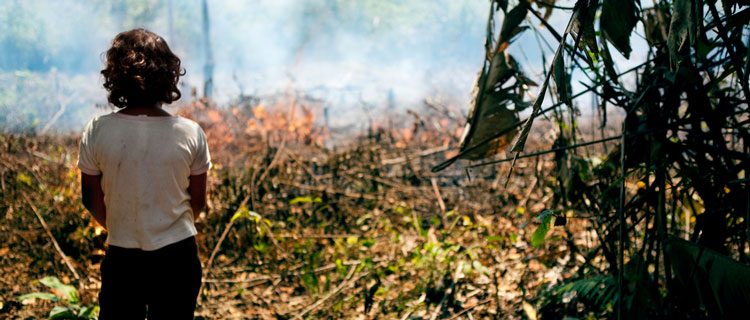
What is the future of sustainability? Has the concept sustainability played its part? These are questions asked in the latest State of the World report. Centre science director Carl Folke contributes with reflections on planetary boundaries and reconnecting to the biosphere. Photo: S. Jansson/Azote
State of the World report 2013
The future state of sustainability
Centre contributes to latest State of the World report
For more than 25 years, Worldwatch Institute's annual flagship State of the World reports have presented key insights and perspectives on everything from global security to urban growth via agricultural innovation.
This year's report asks the fundamental and somewhat uncomfortable question: What is the future of sustainability? Has the concept sustainability played its part?
"Every day, we are presented with a range of "sustainable" products and activities—from "green" cleaning supplies to carbon offsets—but with so much labeled as "sustainable", is it time to abandon the concept altogether, or can we find an accurate way to measure sustainability? If so, how can we achieve it? And if not, how can we best prepare for the coming ecological decline?", the report asks.
They are not the first to assess the term.
Reconnecting to the biosphere
To help clarify and indeed put things in perspective, science director Carl Folke from the Stockholm Resilience Centre (SRC) has contributed with a chapter on the need to respect planetary boundaries and reconnect to the biosphere.
"The biosphere, the part of the Earth's crust, waters and atmosphere where life dwells, is the global ecological system all humans and societies depend on. For too long we have looked at the environment as an externality for economic progress, a handy and limitless stock of resources for human exploitation," Folke says.
In his contribution, Folke describes how humans have rapidly become the single most dominant force on Earth, capable of changing the trajectory of the Earth's future.
"It is indeed a remarkable achievement for a single species to become this dominant, but it has to a large extent been enabled by the human ability to draw on the functioning of the biosphere"
Carl Folke, co-author
Respecting the planetary boundaries
But for the world to continue to develop sustainably, it is crucial to respect the Earth's planetary boundaries.
"The planetary boundaries framework is an approach that shed lights on the significance of the biosphere and how it operates in support of social and economic development," Folke argues.
He says that it not only sheds light on the crucial significance of a functioning Earth and human well-being, but also the acknowledgment that humans and nature are closely connected. Future development must account for this in a much better way.
"We need a shift from perceiving people and nature as separate actors and rather consider them as interdependent social-ecological systems. Such a thinking will create exciting opportunities for humans to thrive in generations to come."
Text
Professor Carl Folke is Science Director of the Stockholm Resilience Centre and the Director of the Beijer Institute of Ecological Economics of the Royal Swedish Academy of Sciences, one of the collaborating partners of the Stockholm Resilience Centre. He has extensive experience in transdisciplinary collaboration between natural and social scientists, and has worked with ecosystem dynamics and services as well as the social and economic dimension of ecosystem management and proactive measures to manage resilience.







